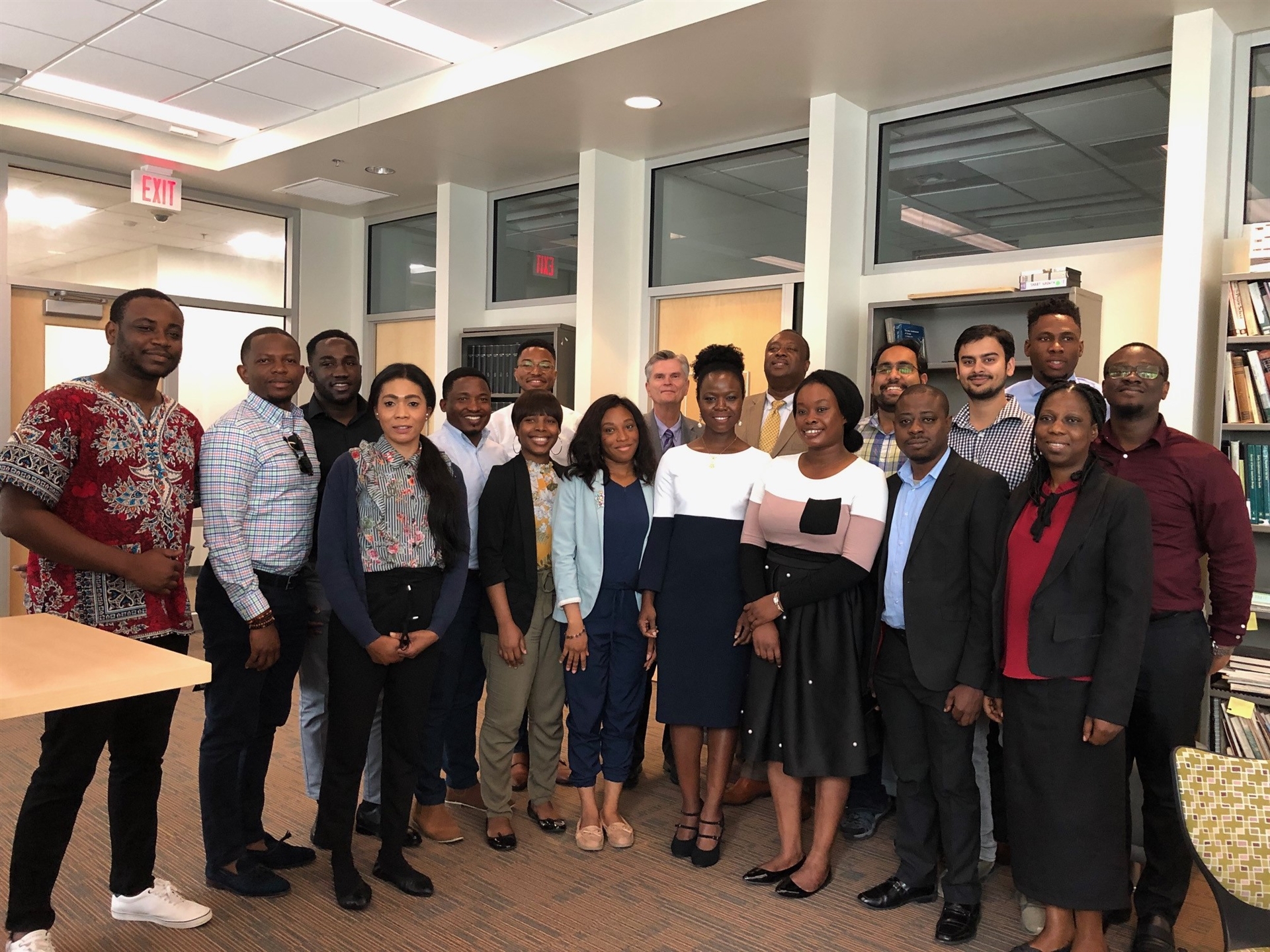Long-running Internship Program Paves the Way for Graduates, Employer
Students routinely participate in internships today, but more than 30 years ago, one of Morgan's most successful internship programs was developed to solve a problem.
The problem was how to sustain its then-new multidisciplinary master's degree program in transportation, the first such offered in the state and at an HBCU. The 12-course program combined engineering, planning and management, and students had a range of backgrounds.
"The idea of sustaining the program required partnership, and the internship program was really a part of that effort," said Dr. Moges Ayele, then a professor and founding director of the transportation program at Morgan who is now retired from the Federal Highway Administration and a member of the National Transportation Center Advisory Committee.
Dr. Ayele prepared the proposal that clearly spelled out the expectations for students and the responsibilities of the Maryland Department of Transportation (MDOT) and Morgan's transportation program. The Maryland Department of Transportation/Morgan State University Graduate School Internship Program was approved in 1986, and Dr. Ayele credits MDOT's Alfred David Watts. "He was very supportive and able to get the blessing of the Secretary of Transportation to get funding for a paid internship - I think ‘paid' was very important."
Three students started in 1987 and a decade later 49 students had gone through the program.
Today, around 15-20 students work for a year, full time in the summer and part time during the school year, in various MDOT Business Transportation Units. They are paired with a mentor, and the program has grown beyond just transportation students to include those majoring in business, architecture, accounting and communications. Many have been hired for both full-time and contractual positions. Several MDOT Secretaries have championed the program, and it was featured in a Transportation Research Board publication NCHRP Report 710.
Morgan has enjoyed similar success; today the University also offers a B.S. in Transportation Systems, B.S. in Transportation Engineering, B.S. in Civil Engineering, Master of Engineering, and the Ph.D. in Transportation and Urban Infrastructure Systems.
"This is a compendium of transportation degrees rivaled by few other universities," said Dr. Andrew Farkas, director of the National Transportation Center at Morgan, which administers the program.
"The one requirement that was clear in the proposal was that students need to be involved in meaningful research or projects - really, truly meaningful involvement," Dr. Ayele said, adding, "They need to be viewed as a resource for the agency."
They have become not only a resource, but a critical source of new talent.
"An internship program, such as this, is an excellent strategy for investing in MDOT's future successes, often leading to discovering of future colleagues and leaders," said Sheryl Johnson, a Talent and Development Learning Specialist with MDOT. "This program has helped our organization to bridge the gap when it comes to finding the next generation of talented problem solvers, innovators, and future leaders."
Buffalo, New York, native Trannell Griffin was new to Baltimore when she interned in 1998 in the Service Planning department at MTA. She worked on a bus stop study using technology to map and analyze the transit system to better serve riders.
"A few of my responsibilities were to work with a consultant using GPS - back in 1998!! - to locate and enter all the bus stops and amenities into the GPS system, later creating GIS maps," said Griffin, now a senior performance analyst with the Washington Metropolitan Area Transit Authority. "I was able to learn the city and speak to residents about the transit system as well as explore each county in the state. In addition, I spent time working with two consultant firms that were assisting me with the project. This gave me more exposure, and after leaving my internship I applied and was hired as a Junior Transportation Planner with Parsons Brinckerhoff, one of the consultant firms I worked with during my internship."
She learned critical non-technical skills as well.
"The experiences I learned from my internship was purely relationship building. I had amazing mentors that not only taught me about transportation and planning but about office etiquette, including dressing for the job I want, not the current job I have; appropriate conversations at work; ensuring I knew which websites, newspapers and organizations I needed to read/involve myself in to stay up to date with current affairs; and, most importantly, not to solely rely on technology/email to communicate or request items with people in the office.
"With the guidance of mentors, I learned how to express myself if I was dealing with issues and I also learned a valuable lesson of negotiating salary, benefits and ensuring I did not overwork myself and burn out. I learned the benefit of putting money in my 401k even if it's $20 at an early age, as well as how to budget my finances. These are things college doesn't teach you."
MDOT's Johnson noted: "The students come in with high energy that seems to magnify their curiosity as they discover their natural talents within and as we envision the possibilities of what the MDOT future can be. MDOT is an organization where learning is reciprocal - this is why the year-long graduate school internship program works well for both the student and the MDOT organization."


